
This annual symposium is dedicated to the late Erich Bloch, former director of the National Science Foundation who helped endow the Department of Materials Design and Innovation at UB. The symposium is part of the MDI Summer Institute, an extra-mural program of UB’s Department of Materials Design and Innovation that supports a broad range of outreach activities to promote research and education platforms in materials design. This year's conference theme is exploring and harnessing data.
Exploring and Harnessing Data with Confidence
Throughout the symposium, we will examine the challenges in harnessing, using, analyzing and interpreting large volumes and diverse data.
We will welcome leaders from different fields and organizations to describe their approaches to representing and defining data, processing data quickly and efficiently, ensuring a level of certainty in data analysis and interpretation, and recording and analyzing data with a high level of detail and accuracy so that small changes and trends are not missed.
The symposium will also explore the issue of data justice, including equity and fairness in data collection; transparency and accountability in data use; and the inclusion of diverse perspectives in the data collection, analysis and application processes.
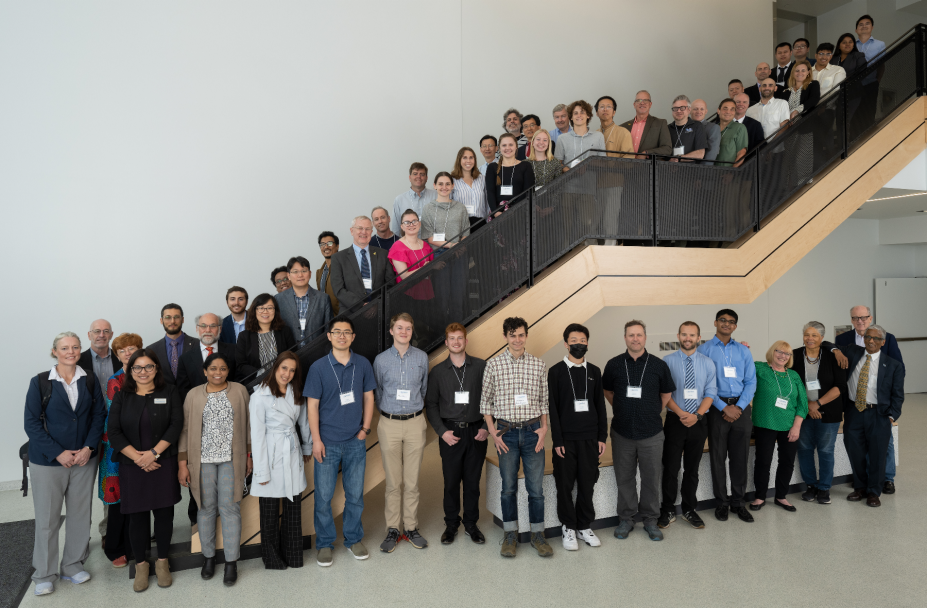
Tuesday, June 6 | 101 Davis Hall | North Campus
Time | Topic | Speaker(s) |
|---|---|---|
| 8:00 a.m. | Coffee and Registration | |
| 8:30-9:00 a.m. | Welcome and Introductions | Krishna Rajan, SUNY Distinguished Professor and Erich Bloch Chair, Department of Materials Design and Innovation, University at Buffalo Kemper Lewis, Dean, School of Engineering and Applied Sciences, University at Buffalo |
| 9:00-10:40 a.m. | Session I: Seeking Precision in Ultra-Large Datasets | Session Chair: Edward Snell, Director, NSF STC BioXFEL; Senior Scientist, CEO of Hauptman-Woodward Medical Institute; Professor, Department of Materials Design and Innovation, University at Buffalo |
| Seeing is Believing: Every Atom in its Place | Thomas F. Kelly, Member, National Academy of Engineering, CEO and Founder, STEAM Instruments, Inc. | |
| Transferring Knowledge: From atom locations to materials properties: Computational materials engineering with active learning | Milica Todorovic; Assistant Professor, Department of Mechanical and Materials Engineering, University of Turku, Finland | |
| 10:40-11:00 a.m. | ----------Break---------- | |
| 11:00 a.m. - 12:00 p.m. | Session II: Accelerating materials research: Advanced experimental approaches and machine learning | Session Chair: Prathima Nalam, Assistant Professor, Department of Materials Design and Innovation, UB |
| Multiscale microscopy and spectroscopy techniques for material design and innovation | Baishakhi Mazumder, Associate Professor, Department of Materials Design and Innovation, University at Buffalo | |
| Embracing uncertainty in research: the Bayesian approach to materials science | Kristofer Reyes, Assistant Professor, Department of Materials Design and Innovation, University at Buffalo | |
| Artificial intelligence assisted 3D microscopy analysis of ceramics | Prachi Garg, Graduate Student, Department of Materials Design and Innovation, University at Buffalo |
| 12:00-1:00 p.m. | ----------Lunch---------- | Boxed lunch will be provided |
| 1:00-2:30 p.m. | Session III: Data Equity, Fairness, and Accuracy | Session Chair: E. Bruce Pitman, Professor, Department of Materials Design and Innovation, University at Buffalo |
| Panel Discussion - Data accuracy, equity, and inclusion | Ali McPherson, Director of the Investor Environmental Health Network, Clean Production Action and Niagara Share
Mark Rossi, Executive Director, Clean Production Action
Sheila Davis, Coordinator, Solar Scorecard
Steven Heim, Managing Director and Director of Environmental, Social and Governance (ESG) Research, Boston Common Asset Management, LLC
Maysoon Alkhuzai, Production Engineering Manager, Tesla | |
| 2:30-2:45 p.m. | ----------Break---------- | |
| 2:45-4:15 p.m. | Session IV: Exploring and harnessing data for clean energy: Opportunities and challenges | Session Chair: Quanxi Jia, SUNY Distinguished Professor, Department of Materials Design and Innovation, University at Buffalo |
| Novel mechanical and chemical approaches to create efficient power sources via nanoscale material manipulations | Jung-Hun Seo, Associate Professor, Department of Materials Design and Innovation, University at Buffalo | |
| Materials innovations for clean energy: exploring and harnessing data and models | Olga Wodo, Associate Professor, Department of Materials Design and Innovation, University at Buffalo | |
| Two-dimensional post-graphene materials for clean energy applications | Yu Fu, Graduate Student, Department of Materials Design and Innovation, University at Buffalo | |
| 4:30-5:15 p.m. | Session V: Student Jamboree | Session Chairs: Scott Broderick, Associate Professor, Department of Materials Design and Innovation, University at Buffalo Eric Osei-Agyemang, Distinguished Research Fellow, Department of Materials Design and Innovation, University at Buffalo |
| Student Presentations | Presentations by graduate students from the Department of Materials Design and Innovation, University at Buffalo | |
| 5:30-7:30 p.m. | Poster Session and Reception (Salvatore Lounge, Davis Hall) |
Wednesday, June 7 | 101 Davis Hall | North Campus
Time | Topic | Speaker(s) |
|---|---|---|
| 8:30-9:00 a.m. | Welcome | Robin Schulze, Dean, College of Arts and Sciences, University at Buffalo |
| 9:00-10:30 a.m. | Session VI: Accelerating Discovery with Confidence | Session Chair: Erik Einarsson, Associate Professor, Department of Materials Design and Innovation, University at Buffalo |
| Fast experiments for materials to devices: How to use knowledge-augmented risk assessment to reach a well-informed decision for complex problems | Kristin Schmidt, Manager, Accelerated Materials Discovery, Vice-Chair of Physical Sciences Council, IBM | |
| Fast computing for accelerated discovery: Small data is (and may always be?) the problem | Francis J. Alexander, Deputy Director, Computational Science Initiative, Brookhaven National Laboratory | |
| 10:30-11:00 a.m. | ----------Break---------- | |
| 11:00 a.m. - 12:15 p.m. | Session VII: Seeking Knowledge with Clarity | Session Chair: Fei Yao, Assistant Professor, Department of Materials Design and Innovation, University at Buffalo |
| Harnessing ontology for intelligent design | Christophe Nicolle, Professor, University of Burgundy, France. | |
| Achieving Climate Goals – balancing economic viability with environmental justice | Dennis Elsenbeck, Head of Energy and Sustainability, Phillips Lytle LLP | |
| 12:15-12:30 p.m. | Concluding Comments | Krishna Rajan, SUNY Distinguished Professor and Erich Bloch Chair, Department of Materials Design and Innovation, University at Buffalo |
| 12:30-2:00 p.m. | Lunch and Networking | Boxed lunch will be provided |
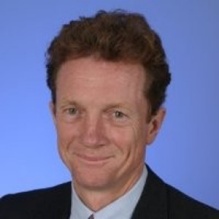
Thomas F. Kelly
Member, National Academy of Engineering, CEO and Founder, STEAM Instruments, Inc.
Kelly received his Ph.D. in materials science and engineering from MIT in 1981. He was a professor of Materials Science and Engineering at UW-Madison from 1983 until 2001 where he also served as director of the Materials Science Center from 1991 to 1999. Dr. Kelly founded Imago Scientific Instruments to commercialize the Local Electrode Atom Probe or LEAP. The LEAP is a major advance for atom probe tomography by capturing three-dimensional atom-by-atom “images” of materials at high speeds and high resolution. In 2010, Imago was acquired by Cameca Instruments where Kelly served as vice president for innovation until 2018. He is currently the founder and CEO of Madison-based Steam Instruments, which is developing a high-performance mass spectrometer for use in life sciences applications.
Tom Kelly has been active in the fields of analytical electron microscopy, atom probe microscopy, rapidly solidified materials, and electronic and superconducting materials for over 40 years. He has published over 250 papers and 17 patents in these fields in that time. Tom has driven innovation in instrumentation for atom probe tomography over the past two decades. He continues to pursue microscopy innovations such as atomic-scale tomography by developing new detector technologies and combining atom probe tomography with electron microscopy in a single instrument.
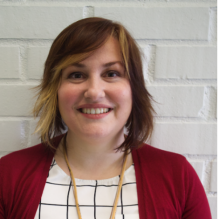
Milica Todorovic
Assistant Professor, Department of Mechanical and Materials Engineering, University of Turku, Finland
Dr. Todorovic moved from Serbia to the UK to study physics at University College London and obtained her DPhil in Materials Science from Merton College at the University of Oxford in 2008. She went to work at the National Institute for Materials Science (Japan) and Universidad Autonoma de Madrid (Spain), where she specialized in the development and HPC applications of large-scale first-principles calculations. She joined Patrick Rinke’s CEST group at Aalto University, Finland in 2015, and joined the University of Turku in 2021 as an Assistant Professor of Materials Engineering. Dr. Todorovic’s focus is on organic/inorganic interfaces and data-driven materials science. She studies the interface of machine learning algorithms with quantum mechanical simulations of materials to optimize material functionality and specializes in improving the performance of organic and inorganic components in solar cell devices.
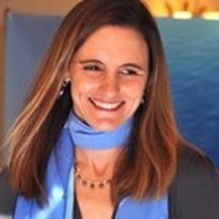
Ali McPherson
Director of the Investor Environmental Health Network, Clean Production Action and Niagara Share
McPherson received her BA from the University of New Hampshire and is a graduate of the LEAD program at the Stanford Graduate School of Business.
McPherson has been leading IEHN since January 1, 2018. The Investor Environmental Health Network is a collaborative partnership of investment managers, advised by nongovernmental organizations, concerned about the financial and public health risks associated with corporate toxic chemicals policies. Alexandra co-founded Clean Production Action (CPA) in the U.S. in 2001, where she served as Managing Director for its first decade. Alexandra served on the national advisory board of EPEAT (Electronic Product Environmental Assessment Tool) and has published on chemicals management in the electronics sector. She currently serves also as Principal of Niagara Share, a multi-stakeholder initiative promoting sustainable economic development in the Buffalo/Niagara region of upstate New York. McPherson has spent over twenty years scaling environmental solutions through the development of new organizations, projects, and partnerships. She co-leads the Collaborative for the Regenerative Economy (CoRE), a multi-million-dollar material innovation, and clean production program for clean energy technologies, with the University at Buffalo's Materials Design and Innovation Department and Clean Production Action (CPA).
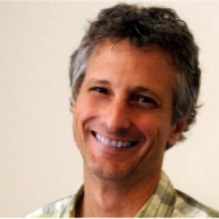
Mark Rossi
Executive Director, Clean Production Action
Dr. Rossi received his Ph.D. in Environmental Policy from the Massachusetts Institute of Technology.
Dr. Rossi co-founded the Chemical Footprint Project (CFP), a first-of-its-kind initiative to quantitatively measure chemical footprints and allow manufacturers and retailers to benchmark and communicate their progress in chemicals management performance and in reducing potentially hazardous chemicals relative to industry peers.
He is the founder of BizNGO, a collaboration of businesses, NGOs, and governments that work together to create solutions for safer chemicals and sustainable materials. In 2018, Dr. Rossi co-created GreenScreen® for Safer Chemicals, a globally-recognized chemical hazard assessment method used by governments and businesses in the electronics, apparel, and building sectors to identify safer alternatives to toxic chemicals. In 2017, Mark led CPA’s launch of GreenScreen Certified™, a certification program for products that meet rigorous GreenScreen criteria.
Dr. Rossi’s career includes stints at the Tellus Institute, Massachusetts Toxics Use Reduction Institute, and Health Care Without Harm.
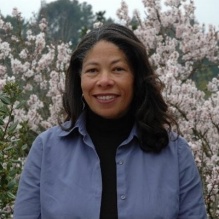
Sheila Davis
Coordinator, Solar Scorecard
Sheila Davis holds a bachelor’s degree from the University of California, Santa Cruz and served as a journalist, state legislative aide, and community development specialist. She joined the staff of Silicon Valley Toxic Coalition (SVTC). Ms. Davis, Founder of the Solar Scorecard Project, has provided more than 25 years of advocacy, research, and policy development in the field of sustainable electronics.
She has played a leadership role in shaping environmental policy in the high-tech industry. In 1996 Davis researched and developed the first electronic recycling legislation to reach the California Governor’s desk and in 1999 spearheaded the first pilot programs in the country to collect and recycle electronic waste from the residential curbside. Sheila’s research, advocacy, and policy development led to a successful ban on hazardous electronic waste from California municipal landfills and the subsequent passage of the first electronic recycling legislation in the nation and has led investigations into e-waste dumping in India and the use of US prison labor in electronic recycling. Under Davis Tenure, SVTC launched the Sustainable Solar Initiative, and release the “Toward a Just and Sustainable Solar Industry,” report which outlined the environmental impacts of the solar industry.
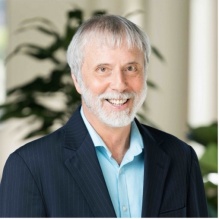
Steven Heim
Managing Director and Director of Environmental, Social and Governance (ESG) Research, Boston Common Asset Management, LLC
Steven Heim earned his degrees from MIT and is a founding member of the Boston Common team with over thirty years of experience in the sustainable and responsible investment field. Steven is primarily responsible for ESG research and shareholder engagement and helps guide Boston Common’s ESG investment guidelines and research. His commitment and expertise shine through his deep, research-derived perspective, unique lifelong personal and professional commitment to sustainability and inclusion, and his many successful innovations to the process of sustained investor dialogue with corporate leadership. Steven has been at the forefront of three major transformative efforts to create a more just and sustainable world through investor and corporate action: working to define goals for GHG emissions reductions, safeguarding Indigenous People’s rights, and facilitating a just transition to a more sustainable future. Steven has brought an awareness that rises beyond sector-relative thinking to highlight how industry and investors must respond to moral choices and trade-offs. This has been most evident in his longstanding and ongoing commitment to helping defend the rights of Native Americans and Indigenous Peoples in many sectors. Steven has long advocated for free, prior, informed consent by Indigenous Peoples in financial decision-making (Equator Principles of global banks), worked to protect land and water from extractive industry activity, and stood against demeaning portrayals of Native Americans in sports (Washington football team name). Steven has helped develop industry standards for sustainable solar energy since 2010, first as an investor advisor for the Solar Scorecard and later by serving on the technical committees for NSF 457, the Sustainability Leadership Standard for Photovoltaic Modules and Photovoltaic Inverters, and the Criteria for the Assessment of Ultra-Low Carbon Solar Modules.
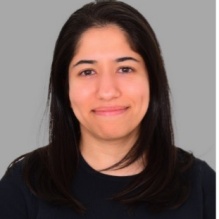
Maysoon Alkhuzai
Production Engineering Manager, Tesla
Maysoon is the Production Engineering Manager at Tesla Giga NY. She received her bachelor’s and master’s degrees from Purdue University.
Maysoon grew up in Bahrain where she developed a passion for solar and renewable energy. She moved to the US in 2008 to pursue a bachelor’s degree in industrial engineering at Purdue University and continued her education with a master’s degree in interdisciplinary engineering. Maysoon had the opportunity within that program to complete a one-year co-op with Cummins and was later offered a full-time position with them as an Industrial Engineer. During this period, she honed her skills in project management, people management, and change management. Her experience at Cummins also helped her realize the important role that data plays in manufacturing and inspired her to pursue a master’s degree in Data Analytics. In Feb 2020, Maysoon decided to pursue a new opportunity with Tesla Giga NY that better aligned with her interest in renewable energy. Her team has helped launch and sustain over 20 production lines at the factory in Buffalo including Solar Roof and Supercharger products.
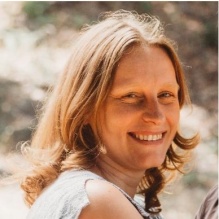
Kristin Schmidt
Manager, Accelerated Materials Discovery, Vice-Chair of Physical Sciences Council, IBM
Dr. Schmidt received her Ph.D. in polymer physics from the University of Bayreuth, Germany, and continued her career at the University of California, Santa Barbara, BASF, and SLAC National Laboratory before joining IBM in 2014. Currently, Dr. Schmidt is managing the accelerated materials discovery group at IBM Research in Almaden. Her team develops AI solutions to help scientific experts discover and invent faster. She is also the vice-chair of the physical science council and in this role, she supports high-risk, high-reward exploratory research at IBM research.
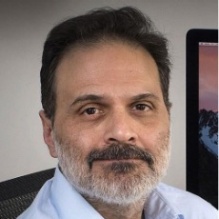
Francis J. Alexander
Deputy Director, Computational Science Initiative, Brookhaven National Laboratory
Dr. Alexander received his PhD from Rutgers, the State University of New Jersey.
Dr. Alexander joined the Department of Energy’s Brookhaven National Laboratory in 2017 as the Deputy Director of the Computational Science Initiative. He came from DOE’s Los Alamos National Laboratory, where he was the acting division leader of the Computer, Computational, and Statistical Sciences (CCS) Division. During his more than 20 years at Los Alamos, he held several leadership roles, including as leader of the CCS Division’s Information Sciences Group and leader of the Information Science and Technology Institute. Dr. Alexander first joined Los Alamos in 1991 as a postdoctoral researcher at the Center for Nonlinear Studies. He returned to Los Alamos in 1998 after doing postdoctoral work at the Institute for Scientific Computing Research at DOE’s Lawrence Livermore National Laboratory and serving as a research assistant professor at Boston University’s Center for Computational Science.
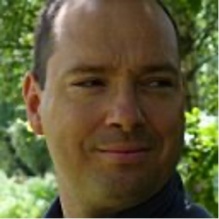
Christophe Nicolle
Professor, University of Burgundy, France
Dr. Christophe Nicolle received his Ph.D. from the Université Bourgogne in Computer Science. Dr. Nicolle is currently a full professor at the Université de Bourgogne (UB), France. He is the founder and director of the Distributed Artificial Intelligence and Knowledge (CIAD) Laboratory, Université Bourgogne Franche-Comté, France. He is the founder and head of the Checksem business unit with the University of Burgundy. He has authored more than 180 research articles in international journals, conferences, and workshops. His research interests include knowledge representation and reasoning.
Dr. Nicolle’s research focuses on knowledge engineering and more specifically on causal reasoning. It is a branch of artificial intelligence that uses decidable ontologies to represent human know-how. This is the basis for creating Explicit Artificial Intelligence. In addition, he uses this approach by combining it with IoT, Big Data, and Deep Learning. He built several Distributed Artificial Intelligences by aggregating several types of reasoning. These systems have been developed in partnership with many French start-ups (Active3D, Wittym, Ezakus, ...). Dr. Nicolle applies these systems to several areas: management of knowledge lifecycle in the field of packaging, forensic analysis in the field of cybercrime, smart building, and smart city or distributed reasoning on smart camera networks (they see but tell rather than transmit videos), Predictive analysis of vineyard lifecycle.
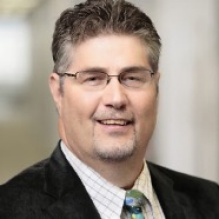
Dennis Elsenbeck
Head of Energy and Sustainability, Phillips Lytle LLP
Dennis Elsenbeck received his master’s degree in applied engineering from the University at Buffalo and his MBA degree from the University of Rochester.
Mr. Elsenbeck provides consulting services on a broad range of energy-related opportunities encompassing a forward view of supply, distribution, and demand options. In his leadership role with a major U.S. utility for nearly 30 years, At Phillips Lytle, he provides business perspectives on long-term policies and the economic landscape. He assists clients with due diligence and regulatory compliance on energy transactions; regulatory counseling involving Public Service Commission proceedings; energy procurement and utility negotiations involving government entities and municipalities; procurement consulting regarding the reduction of energy costs and review of economic incentives; market-driven integrated resource planning and identifying commercial and technical issues associated with energy-related opportunities. Mr. Elsenbeck helps clients move critical energy projects forward by providing creative solutions and overcoming project challenges. He works to develop the voice of the consumer in energy policy and bill impacts as sustainability becomes a focus of energy policy. Mr. Elsenbeck collaborates with clients in shaping the “utility of the future.”
Mr. Elsenbeck is a well-recognized expert in the energy field and is a highly sought-after lecturer on a variety of topics across the U.S.
If we knew the identity and location of every atom in a material, would we know everything there is to know about the material? Could we calculate the strength, electrical conductivity, color, … from this information? If such information existed, would it change how science and engineering operate? We think so but it may be decades before we have the computing power and algorithms to take full advantage. Of course, we will need to determine the atomic positions to get this all started. The authors have proposed to build a microscope that can indeed map all atom positions with high precision, at least for billions of atoms. The microscope would combine an electron microscope with an atom probe imaging mass spectrometer to achieve what we term Atomic-Scale Analytical Tomography (ASAT). Within the next five years, it is expected that ASAT will be achieved.
Advances in science and technology have been the foundation of societal progress for centuries. In the world of technology, the need for atomic-scale characterization of materials and devices grows more acute with time. Improvements in the quality, quantity, and availability of such information from instruments like ASAT thus can have a large impact on technological progress. It is said that better tools beget even better tools in a virtuous circle. The advances described in this talk are the first steps toward new tools that will meet the demands of scientists and engineers for decades to come.
This work was developed in collaboration with Brian P. Gorman, Colorado School of Mines, Golden, CO USA, and Simon P. Ringer, University of Sydney, Sydney, Australia
Let your BOSS do the work: engineering materials with active learning
Tomorrow’s technologies increasingly depend on sophisticated functional materials with designer properties. In our bid to tune materials functionality and related synthesis procedures, we seek solutions that satisfy multiple desired objectives. This task can be accelerated with artificial intelligence (AI) methods such as active learning, where datasets are collected on-the-fly in the search for optimal outcomes. This presentation will explain how such an autonomous algorithm was encoded into the Bayesian Optimization Structure Search (BOSS) tool for materials research. This BOSS tool was combined with quantum-mechanical atomistic simulations to study molecular conformers and surface adsorbates, thin film growth, and solid-solid interfaces. In laboratory work, BOSS guided experimental data collection to develop predictive models and optimize target properties, while conducting as few experiments as possible. The smart sampling and versatile extensions of active learning make it a promising tool for resource-efficient materials engineering.
Kristofer Reyes
Uncertainty is inevitable in scientific research and typically manifests as a hurdle to accelerated discovery. Our typical response to such uncertainties is to eliminate uncertainty, expending significant research effort, time, and money along the way. This approach is the default mode to research an Edisonian trial-and-error approach in gathering large data sets, refining our experimental methodologies, and perfecting our understanding of the fundamental physical processes underlying the systems we wish to study, all toward ambiguous and poorly defined ends. In this talk, we explore an alternative, Bayesian approach that requires us to explicitly and rigorously model uncertainties and research objectives, then employ formal methods in experimental design under uncertainty to optimize the research endeavor with respect to such objectives. We shall explore several examples of such an approach pursued by faculty in the Materials Design and Innovation department, then argue how the method naturally applies to broader scientific research. We will highlight examples, including autonomous, self-driving labs and record-breaking computations on some of the world's most powerful supercomputers.
Baishakhi Mazumder
Whether it is the carbon fiber composite used in a bicycle frame or the integrated circuitry embedded in a smartphone, each material undergoes a developmental journey involving iterative cycles of characterization and performance testing. By employing multiscale microscopy techniques, we can examine their structure and composition at a microscopic level, and thus, generate valuable data. Furthermore, this data generation goes hand in hand with iterative cycles of characterization and performance testing. Scientists and engineers can leverage the insights obtained through microscopy to establish the connections between the material’s structure, composition, and its governing properties. This data-driven approach enables designers to craft superior products with optimized performance characteristics.
Prachi Garg
AI empowers the extraction of latent features from noisy and complex 3D atomic data, revealing unprecedented insights into the complex world of materials. Through advanced algorithms, AI recognizes patterns and correlations between atomic positions, chemical compositions, and material properties, unveiling structure-function relationships. This innovation accelerates materials discovery, enabling tailored material design and driving scientific innovation.
Ali McPherson, Mark Rossi, Sheila Davis, Steven Heim, Maysoon Alkhuzai
Data accuracy, equity, and inclusion are essential for evidence-based decision-making to support the growing adoption of renewable energy technologies and enable the transition to a global low-carbon economy. This session will focus on how best practices in data equity, inclusion, and accuracy can help the creation of an inclusive renewable energy economy—one that is by design, more regenerative and equitable for people and the planet. Panelists will include energy technology manufacturers in Buffalo who will offer their perspectives on how data is being used to inform community relations and production; experts who have created data-based assessment tools to benchmark progress toward environmental justice (EJ) and new ways to use EJ data justice analysis to drive best practices and innovative solutions; data-based tools to determine chemical footprints and drive safer chemical use in production and products; and leaders from the finance sector who will discuss the importance of data transparency and accuracy to meet the expectations of investors who are working to improve the environmental, social, and governance performance of companies.
This session is coordinated by the Collaboratory for the Regenerative Economy (CoRE), which was established in 2017 through the generous support of the JPB Foundation. CoRE brings together leaders working to advance a renewable energy economy that is more regenerative by design particularly as it relates to clean production, environmental justice and safer material innovation, and responsible sourcing.
Jung-Hun Seo
Energy generation, harvesting, and storage refer to the set of processes by which useful energy is captured from waste, environmental or mechanical sources and is converted into a usable form. The discipline of energy generation and harvesting is a broad topic that includes material synthesis, processing, structure design, and device demonstration. This presentation will review various MDI's research efforts on energy generation, harvesting, and storage with the highlight of the nano-/micro-material science with their underlying principles and design factors.
Olga Wodo
Clean technologies are critical for the well-being of our species and our planet. In the past, new materials have driven innovation and shaped our civilization, as evidenced by the names of the main prehistoric phases of human history (e.g., stone, bronze, and iron ages). Looking into the future, materials innovation (e.g., biodegradable materials, materials for renewable energy, catalysts) more than ever, is critical to solving our pressing needs. This presentation will share work being done at MDI on how to organize materials data, build robust models to fuel materials' inverse design, and advance modeling to accelerate materials discovery and design. This talk will highlight MDI data and modeling activities using case studies of materials design for gas capture, alloy redesign for recyclability and lower environmental costs, shape memory alloy design, and organic solar cells design.
Yu Fu
The development of clean energy technology is indispensable in mitigating climate change and meeting future energy demands. Electrochemical energy strategies including energy storage and electrocatalysis have drawn tremendous attention lately. Two-dimensional (2D) post-graphene materials (PGMs) including transition metal dichalcogenides (TMDs) and transition metal carbides/nitrides (i.e., MXenes) have demonstrated enormous potential as electrode materials due to their large surface area, superior chemical stability, and versatile material engineering possibilities. Nevertheless, their practical application is hindered by the intrinsically low electrical conductivity arising from the semiconducting nature of 2H phase TMDs and the undesired oxidation of MXene. In this talk, effective strategies for PGMs structure-property engineering will be introduced with the aim of optimizing the electrochemical performance for the development of the next-generation Pt-group-metal-free electrocatalysts and lithium-ion battery anodes.
Our society has an increasing need for science to advance more rapidly in order to address pressing issues like pandemics, environmental dangers, sustainable water management, and climate change, among others. Risks should be evaluated from a variety of perspectives for many of these complex issues. For instance, it's crucial to not only consider the performance of the alternative molecule, but the impact on the environment, the toxicity profile, and the patent landscape when evaluating potential replacements for problematic chemicals. IBM Research created a workbench framework with four main parts: generative models, dataset triage, molecule adjudication, and risk assessment to accelerated materials discovery tasks. This talk will demonstrate how knowledge-augmented risk assessment can aid in the discovery of non-regrettable alternate approaches to challenging issues.
Small Data is (and may always be?) the Problem.
This presentation discusses the challenges of having insufficient data for problems involving complex systems and will describe some of the methods that have been developed to overcome these challenges. These methods include transfer learning, the development of optimal priors, and optimal data acquisition. Future directions including wicked problems and resource-constrained optimization will also be discussed.
Artificial intelligence is a form of a mathematical mirror where the beliefs of humanity seek the reflection of truth. In an era where choice implies the necessary understanding of renunciation, how to build machine reasoning whose results are consistent with a future reality? How to influence the learning process of AI with notions of consensus, business knowledge, know-how, or societal rules? This talk will present a few ways to build hybrid reasoning, between mathematics and semantics.
In order for solutions to mitigate the impact of climate change to be sustainable, it is critical that we take a more systematic and holistic approach that encompasses the integration of economics, equity, and politics along with the required technical research. How can markets enable the convergence of business interests with environmental goals? Discussion of what constitutes benefits, costs, and opportunities in relation to climate goals. Exploring supply chain development from raw material to finished marketable products should entail the required skill sets and workforce for full implementation. At the State and Federal level, climate-related spending is stated to be 40% of total spending focused on benefiting disadvantaged communities. Defining that “benefit” as a function of supply chain and workforce development ensures that we capture necessary skilled labor, technicians, engineers, researchers, etc. in a manner that presents opportunity engagement for all. It is only then that we can map participation gaps with appropriate solutions that promote equitable outcomes. Finally, we need to take a fresh look at creative legislative, regulatory, and business models that take sound research from the lab to the field, from policy-driven to market-driven in a manner that balances economic and environmental sustainability.
This year's Erich Bloch Symposium will be held in Davis Hall, University at Buffalo, North Campus.
Guests can park in Jarvis Lot, across the street from Davis Hall, off of White Road. Ticketing will be suspended during the Symposium.

View of Davis Hall on the University at Buffalo's North Campus.
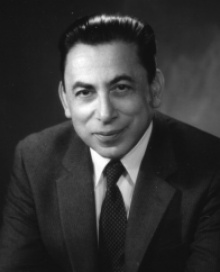
Erich Bloch (January 9, 1925 – November 25, 2016) was a German-born American electrical engineer and administrator. He was involved with developing IBM’s first transistorized supercomputer, 7030 Stretch, and mainframe computer, System/360. He served as director of the National Science Foundation from 1984 to 1990.
Bloch, the son of a Jewish businessman and housewife, lost his parents in the Holocaust, survived the war in a refugee camp in Switzerland and immigrated in 1948 to the United States. He studied electrical engineering at ETH Zurich and received his bachelor of science in electrical engineering from the University of Buffalo.
Bloch joined IBM after graduating in 1952. He was engineering manager of IBM’s STRETCH supercomputer system and director of several research sites during his career. In June 1984, Ronald Reagan nominated Bloch to succeed Edward Alan Knapp as director of the National Science Foundation. The same year, he was elected a foreign member of the Royal Swedish Academy of Engineering Sciences. In 1985, Bloch was awarded one of the first National Medals of Technology and Innovation along with Bob O. Evans and Fred Brooks for their work on the IBM System/360.
After stepping down as director of the National Science Foundation, Bloch joined the Council on Competitiveness as its first distinguished fellow. The IEEE Computer Society awarded him the Computer Pioneer Award in 1993 for high speed computing. In 2002, the National Science Board honored Bloch with the Vannevar Bush Award. He was made a Fellow of the Computer History Museum in 2004 “for engineering management of the IBM Stretch supercomputer, and of the Solid Logic Technology used in the IBM System/360, which revolutionized the computer industry.”
In 2014, Bloch donated $1.5 million to the University at Buffalo to establish the Erich Bloch Endowed Chair for the new Department of Materials Design and Innovation.